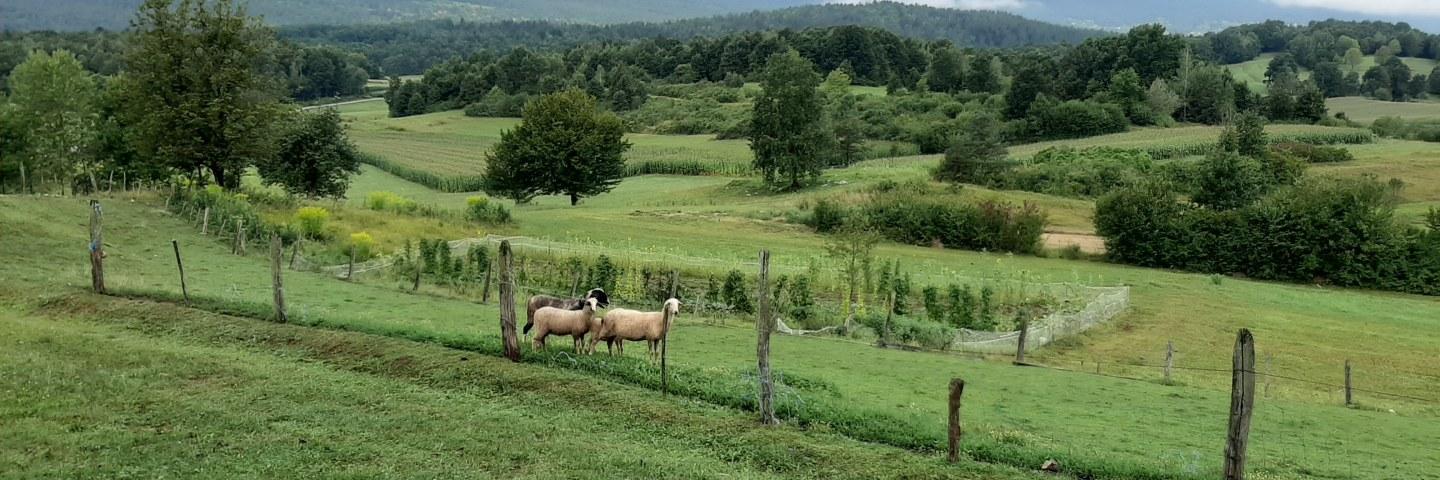PatchWORK explores the concept of work as a life-sustaining practice in the context of sustainable land cultivation through intergenerational childhood memories in a rural area in Slovenia. The project aims to open up alternatives for sustainable and mutual coexistence within our living environments through work experiences that are intrinsically entangled with and co-evolving with society, the environment, and the economy. Furthermore, the project seeks to re-theorize children's participation in work that is not determined by purely economic rationality or educational agendas but is embedded in human and more-than-human relationality, reciprocity, and care.
Three key approaches that contribute to the retheorization of work underlie this project: 1) the approach of thinking through childhood memories allows for documenting and examining everyday sustainable practices and human and more-than-human relationalities that lie outside the attention of contemporary scholarship; 2) a post-socialist decolonial approach that aims to bring into view those knowledges and practices that have been subjugated by Western environmentalism; 3) an intersectional approach to age, gender, and social class that allows for an analysis of gender relations and social class in relation to children's participation in work within rural economic activities across generations.
PatchWORK employs an innovative interdisciplinary methodology that includes sensory walks, collective biography workshops, citizen science and secondary analysis from previous ethnographic fieldwork.
Dissemination includes two co-authored articles, an English-language monograph, writings for general public, a project website and a museum exhibition in The Slovene Ethnographic Museum.
PatchWORK is led by Barbara Turk Niskač, whose research focuses on the anthropology of childhood and the anthropology of work and is supervised by Zsuzsa Millei, Professor of Early Childhood Education and co-leader of the Early Childhood Education Institutions, Policies and Practices (ECEPP) research group.
The project also includes Pauliina Rautio, Senior Research Fellow at the Biodiverse Anthropocenes research programme, University of Oulu and Barbara Sosič, Curator for rural economy at the Slovene Ethnographic Museum as co-supervisors.

Tutkimusrahoitus
Rahoituslähde
This project has received funding from the European Union’s Horizon Europe under MSCA postdoctoral fellowship (HORIZON-MSCA-2021-PF-01, grant agreement 101061450).
